There’s Much More at Stake This March Than Just a National Title
Which program has the most to gain by winning it all? The most powerful power rankings in college basketball breaks it down.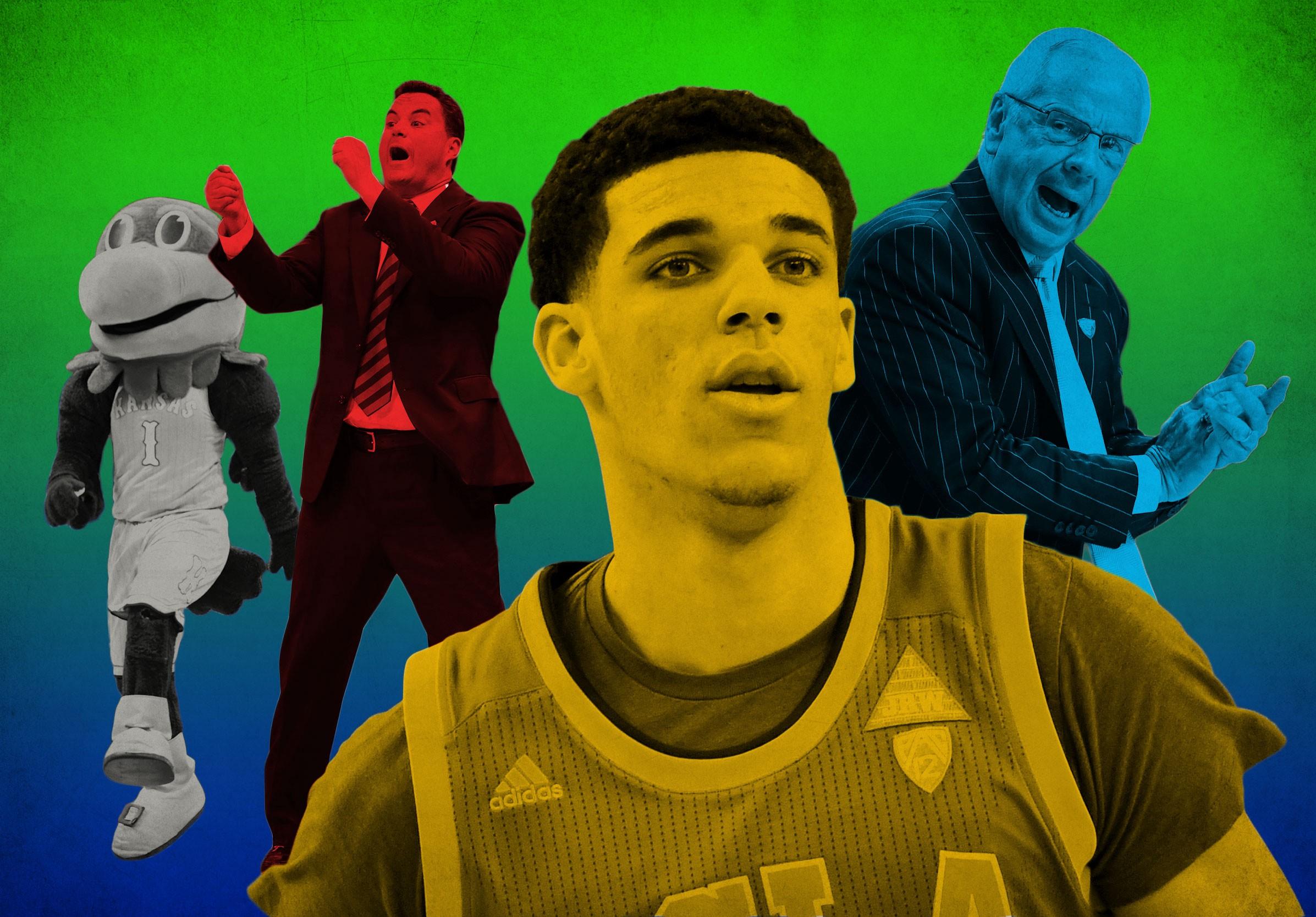
It’s not always obvious when it happens, but every national championship means more than just a trophy and the cutting down of a net. Syracuse’s 2003 national title turned Carmelo Anthony into a college basketball legend and took Jim Boeheim from a coach who had a lot of wins because of soft scheduling into … uh … a national champion coach who has a lot of wins because of soft scheduling. Florida’s 2007 title, won on the backs of a lineup that returned all five starters from its 2006 championship team, was a win for old-school types who love to see players embrace what college has to offer instead of rushing to get to the NBA. Kentucky’s 2012 national title was affirmation that head coach John Calipari’s one-and-done experiment is a method that can lead to a banner. And UConn winning the 2014 title gave coach Kevin Ollie something to point to over the past three years as a growing number of fans in Storrs wondered if he has any idea what he’s doing.
All of the programs in this year’s Sweet 16 are playing for the same trophy, but winning it would mean different things to each of them. Here are my power rankings of the remaining teams that have the most at stake.
16. South Carolina
This is the first Sweet 16 appearance in school history and just the second of head coach Frank Martin’s career, so anything South Carolina does from this point will be icing on the cake. For the sake of this exercise, though, two things jump out when imagining the Gamecocks as national champs. First, they would make a huge addition to the case (which I support) that defense is more important than offense in the quest to win a national title. South Carolina has one of the best defenses in college basketball (it’s fourth in KenPom’s adjusted defensive efficiency metric), but also an abysmal offense that ranked tied for 310th in regular-season field goal percentage (41.4), tied for 238th in 3-point field goal percentage (33.8), and tied for 198th in points per game (72.1). This makes it all the more hilarious that the Gamecocks dropped 65 second-half points on Duke in their 88–81 win.
Second, even though I think conference pride is stupid, many people seem to disagree. Thus, I should mention that a South Carolina title would make the school just the fourth member of the SEC to ever be crowned champion, as well as the fourth to reach the Final Four in the past 20 years.
15. Wisconsin
The Badgers made back-to-back Final Fours in 2014 and 2015 with two teams that were good enough to win national titles but suffered agonizing losses instead. The 2014 squad was steamrolled by Aaron Harrison’s massive balls in what will forever be remembered as one of the greatest shots in NCAA tournament history. (The photo of the point of release on that shot does it much more justice than a video does.) A year later, the Badgers lost the title game against Duke after going on a late scoring drought and allowing a clutch Tyus Jones 3.
So that’s really what’s at stake here: Avenging those two heartbreaking losses that came during the freshman and sophomore seasons for the seniors on this year’s team. A championship would obviously mean a lot for the program, and if we’re doing the conference pride thing, the Big Ten would benefit from capturing its first national title since 2000. (Maryland was in the ACC when it won in 2002, so go ahead and delete that tweet you were about to send me.) Also, a title would validate Greg Gard in his first full year as Wisconsin’s coach, even though Ollie has proved that winning one immediately after replacing a legend doesn’t ensure immunity moving forward. Still, the real significance of a Wisconsin championship run would be the program taking care of unfinished business.
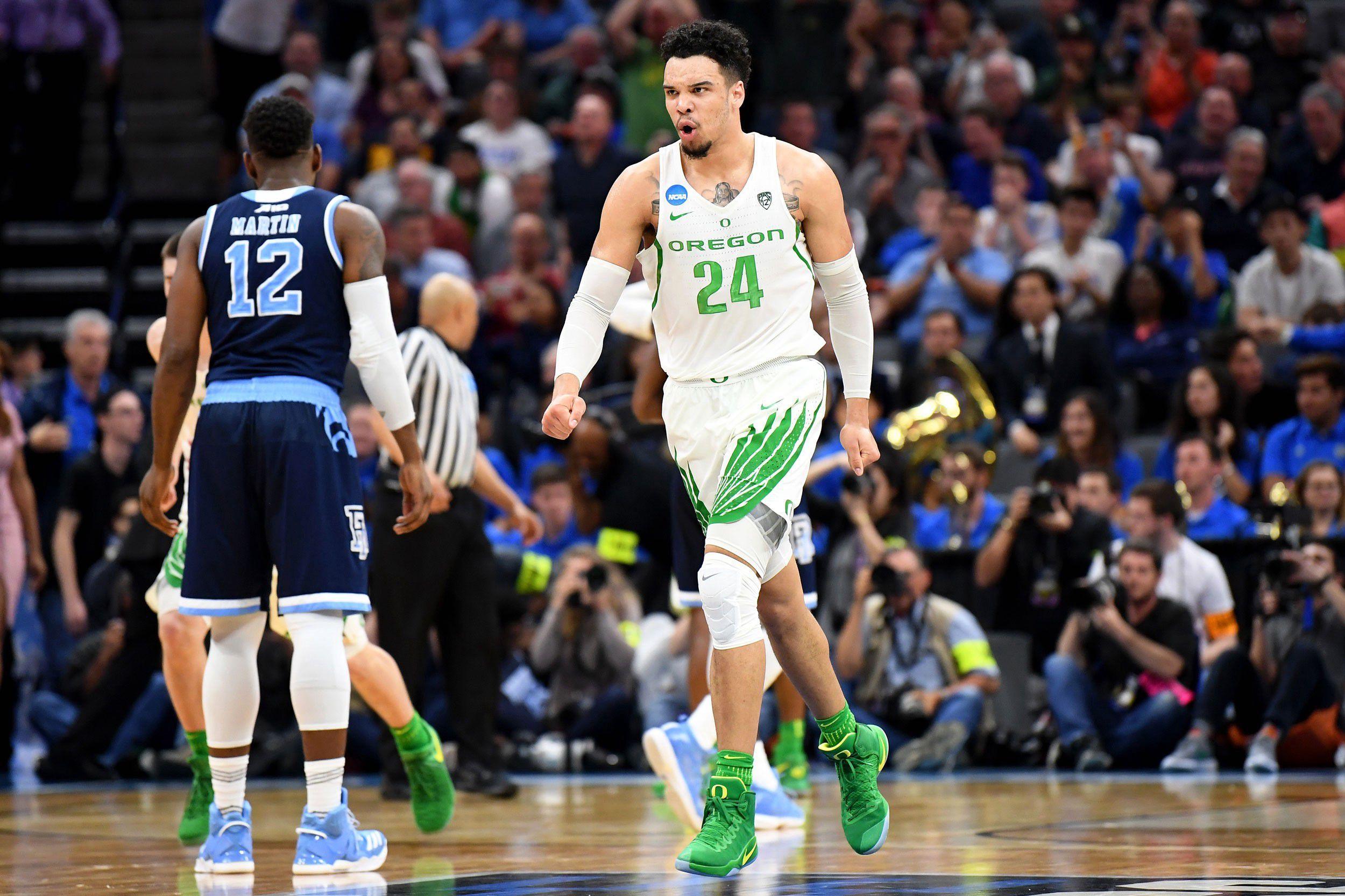
14. Oregon
The Ducks might just be this year’s version of Villanova: They don’t have a single player that you’d bet your life will be in the NBA in seven years, they have a seven- or eight-man rotation predominately comprised of juniors and seniors, they start a freshman at point guard, and they are playing in what everyone assumes has to be Dylan Ennis’s final season of college basketball. (Also, like Villanova last year, Oregon is entering the Sweet 16 at 31–5, lost its conference tournament championship game, and would likely have to play no. 1 seed Kansas in the Elite Eight.) Even if this comparison isn’t perfect, a Ducks national championship would affect the same sorts of things as the Wildcats title did. Namely, it’d be further proof that a program doesn’t need five-star recruits, future NBA lottery picks, or a coach with a pedigree of NCAA tournament success to win it all.
Oregon emerging with the title would also do wonders for the reputation of West Coast basketball. (Here’s a nugget for the conference pride crowd: The only Pac-12 program not named UCLA or Arizona to make a Final Four since Cal in 1960 was Stanford in 1998.) It would raise the draft stock of unbelievable-college-player-but-likely-NBA-tweener Dillon Brooks, and it would get Dana Altman — who has almost 600 career wins but zero Final Four appearances and just three Sweet 16 trips — off every “best coaches nobody talks about” and “best coaches to have never made a Final Four” list.
13. Xavier
Let’s not kid ourselves: Xavier’s real goal is to just make the Final Four. The Musketeers have been to two Elite Eights and came up empty in each trip, a track record that’s particularly agonizing considering that those no good sons of bitches from four miles down the road, Cincinnati, have been to six Final Fours and won two national titles. Beyond playing rivalry catch-up, though, a Xavier national title would keep Chris Mack, who is a popular name in coaching-search speculation these days, at the school long term. (To be fair, I think Mack will stay anyway, and he surely would if Xavier reached the Final Four.) It would also help legitimize a program that’s still in the process of washing off the stench of the “mid-major” label it carried for so many years before joining the Big East in 2013.
Most importantly, if the Musketeers won the title, it might be enough to get my grandma to FINALLY stop pronouncing the school’s name “egg-zavier.”
12. Florida
When Billy Donovan left Florida in early 2015 to coach the Oklahoma City Thunder (for two seasons before moving to Indiana to coach the Hoosiers? Billy … I’m begging you … please …), a semi-interesting question arose: Is Florida a good program? Or was Donovan just a great coach who made the Gators good? It’s an unimportant distinction, sure, but it’s one that idiots like me who like to power rank things were desperate to have answered.
With 40-year-old Mike White leading Florida to the Sweet 16 in just his second year, we’re closer to getting clarity. But one Sweet 16 doesn’t necessarily mean much in the grand scheme, especially given that Florida Gulf Coast, Ohio, and Cornell have all made that stage in the past seven years. But a national title? Hoo boy, that’s different altogether. A third national championship for Florida (in an 11-year window!) would give the Gators as many as Louisville and Kansas (stop counting the pre-tourney titles, Jayhawks fans). It would also undeniably designate Florida as a top-tier college basketball program.
11. Butler
Butler’s situation is kind of a combination of Xavier’s and Florida’s. The Bulldogs went to back-to-back national championship games in 2010 and 2011, but this is their first Sweet 16 appearance since. So what should be made of the program as it stands now? Is it still a mid-major that peaked with its run under former coach Brad Stevens? Or does its membership in the Big East mean that Butler has ascended into high-major status, and that Sweet 16s should be expected with relative frequency?
The latter feels much more accurate, as the Bulldogs have positioned themselves to do just fine in the post-Stevens era. But there seems to be a Cinderella aura that still surrounds the program, and I’m not just talking about its upcoming game against North Carolina. Butler is a no. 4 seed in this tourney — the highest in program history — yet I get the feeling that it’d be an underdog against virtually every team remaining in the field, just because the college basketball universe wouldn’t maintain order otherwise. On the one hand, this is exactly how Butler likes it; on the other, I’m sure there are plenty of Bulldogs fans who are sick of seeing their team treated like a plucky upstart that wins games solely because it recites the tenets of the Butler Way in a daily prayer to the ghost of Tony Hinkle.
A national championship — one the Bulldogs would have to win by beating North Carolina, Kentucky or UCLA, possibly Kansas, and then potentially Arizona in consecutive games — would clear up any confusion. It’d give the Bulldogs a permanent seat at college basketball’s adult table.
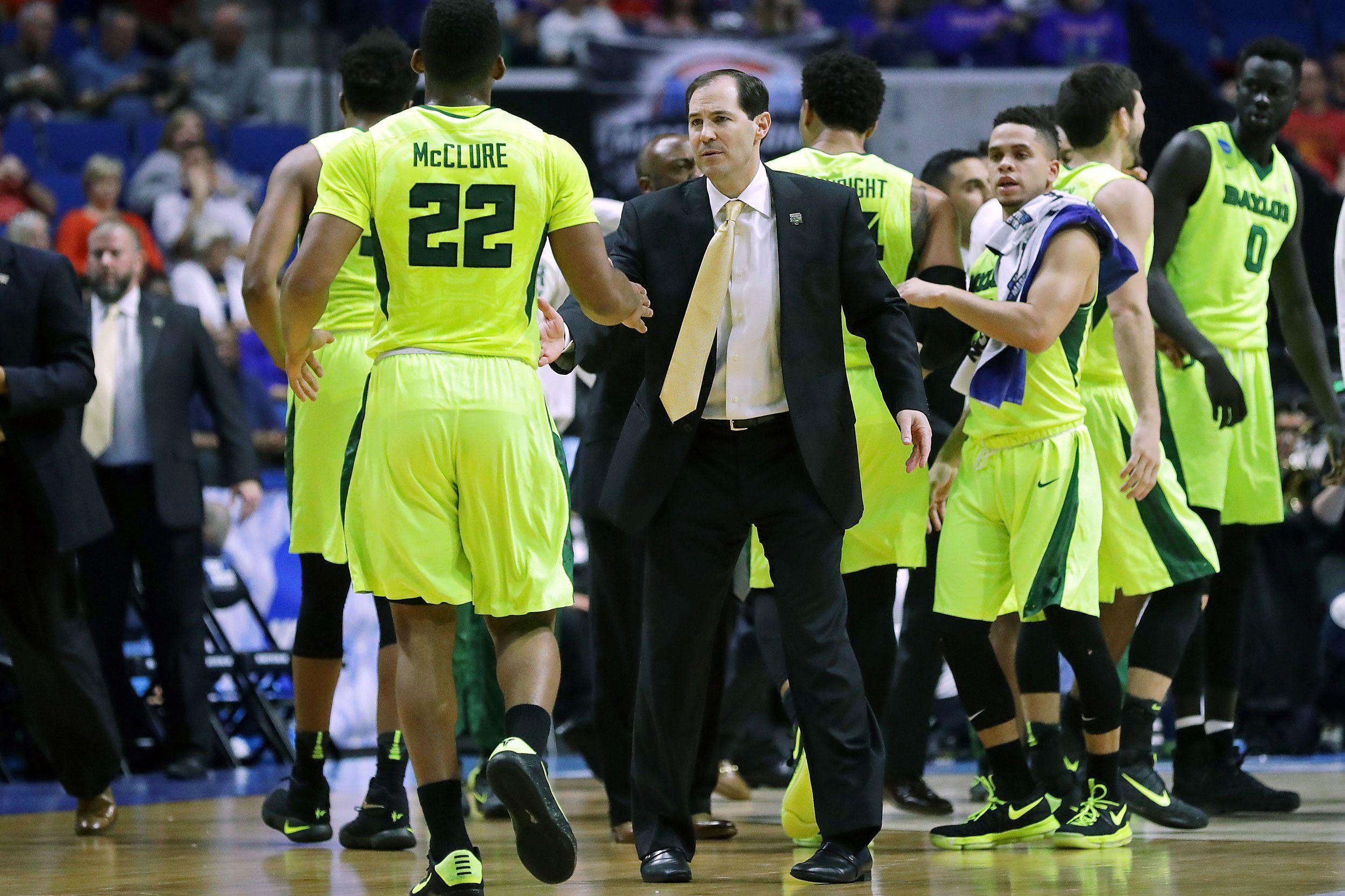
10. Baylor
What’s at stake for Baylor in this tourney is the same thing that’s at stake every time the Bears take the court. It’s the resolution of an unanswerable question, one that disguises what is true and what is false, and sometimes both at the same time: Is Scott Drew a good coach?
Drew has lifted Baylor basketball to new heights; he not only inherited a team that had been to the tournament four times before his arrival, but he also inherited a program in which one player murdered another and in which the team’s former head coach subsequently lied to investigators, telling them the slain player was a drug dealer in an attempt to save his own ass from NCAA violations. During his first few seasons in Waco, Drew was asked to work with an allotment of seven scholarships and to help the program move past one of the worst scandals in college sports history (but not even the only horrifying scandal in recent Baylor history). That he has taken the Bears to two Elite Eights, in 2010 and 2012, and a no. 1 ranking in this season’s AP poll is a testament to his coaching.
Outside of Baylor’s 2013 NIT championship, though, Drew has never won a March or April trophy in his 14 seasons as the Bears head coach — not a Big 12 regular-season or tournament title, and not an NCAA regional title that comes with a trip to the Final Four. Should he reach the top of the college basketball mountain with four more victories in this year’s bracket, I think it’s fair to say that we will finally have a definitive answer to the Scott Drew riddle that has confounded us for years.
Unless, as someone pointed out on Twitter, Baylor’s path to a title goes through a no. 14 seed (New Mexico State), a no. 11 seed (USC), a no. 7 seed (South Carolina), a no. 8 seed (Wisconsin), a no. 11 seed (Xavier), and a no. 7 seed (Michigan). Then the debate will probably rage on!
9. Michigan
The hottest team in college basketball is also the loosest team left in the field, something that doesn’t seem to be a coincidence. Michigan has played this entire postseason as if it has nothing to lose for three probable reasons: (1) high-stakes games no longer faze a team that was on the bubble a month ago and has been in countless must-win contests since; (2) surviving a plane scare in advance of the Big Ten tournament has a way of putting wins and losses into perspective; (3) John Beilein’s coaching philosophy basically boils down to “if you’re open, there’s no such thing as a bad shot.”
With that in mind, the Wolverines are in a similar situation as South Carolina, playing with house money while also attempting to prove that one-dimensional teams (Michigan is to offense what South Carolina is to defense) can get the job done in March. Yet unlike the Gamecocks, the Wolverines have a Team of Destiny label to uphold and a coach (who some fans wanted fired earlier in the season) to glorify. A national championship would give Beilein a fat ring to put on the middle finger he’d show to his critics, and more importantly, it’d lead to a movie about Michigan making maybe the greatest run in college basketball history.
8. Purdue
BANNERS. That’s Purdue fans’ biggest vulnerability when they debate whether their program is superior to Indiana’s. The Boilermakers have won the most Big Ten regular-season titles of all time (23). They hold a 117–89 advantage in head-to-head matchups against the Hoosiers. They can claim more consensus All-Americans, more Big Ten tournament titles, and more John Woodens than Indiana can. But all of that is rendered moot because the Hoosiers have five national title banners hanging from the Assembly Hall rafters, while Purdue is left pretending that the 1932 squad that went 17–1, faced only two opponents from outside the Midwest, won a game by scoring 26 points, and played seven years before the NCAA tournament existed should count as a national title as well.
If you wanted to make the case that Purdue has the biggest discrepancy in America between its regular-season and NCAA tourney success, I wouldn’t try to stop you. The Boilers have been to just four Elite Eights and two Final Fours (the most recent of which came in 1980), and this is only their third trip to the Sweet 16 in the past 15 years. Securing a national title would change everything for the program. And best of all for Purdue fans, winning a championship would shut down any and all upcoming arguments with Indiana fans, especially on the heels of the Hoosiers firing their head coach.
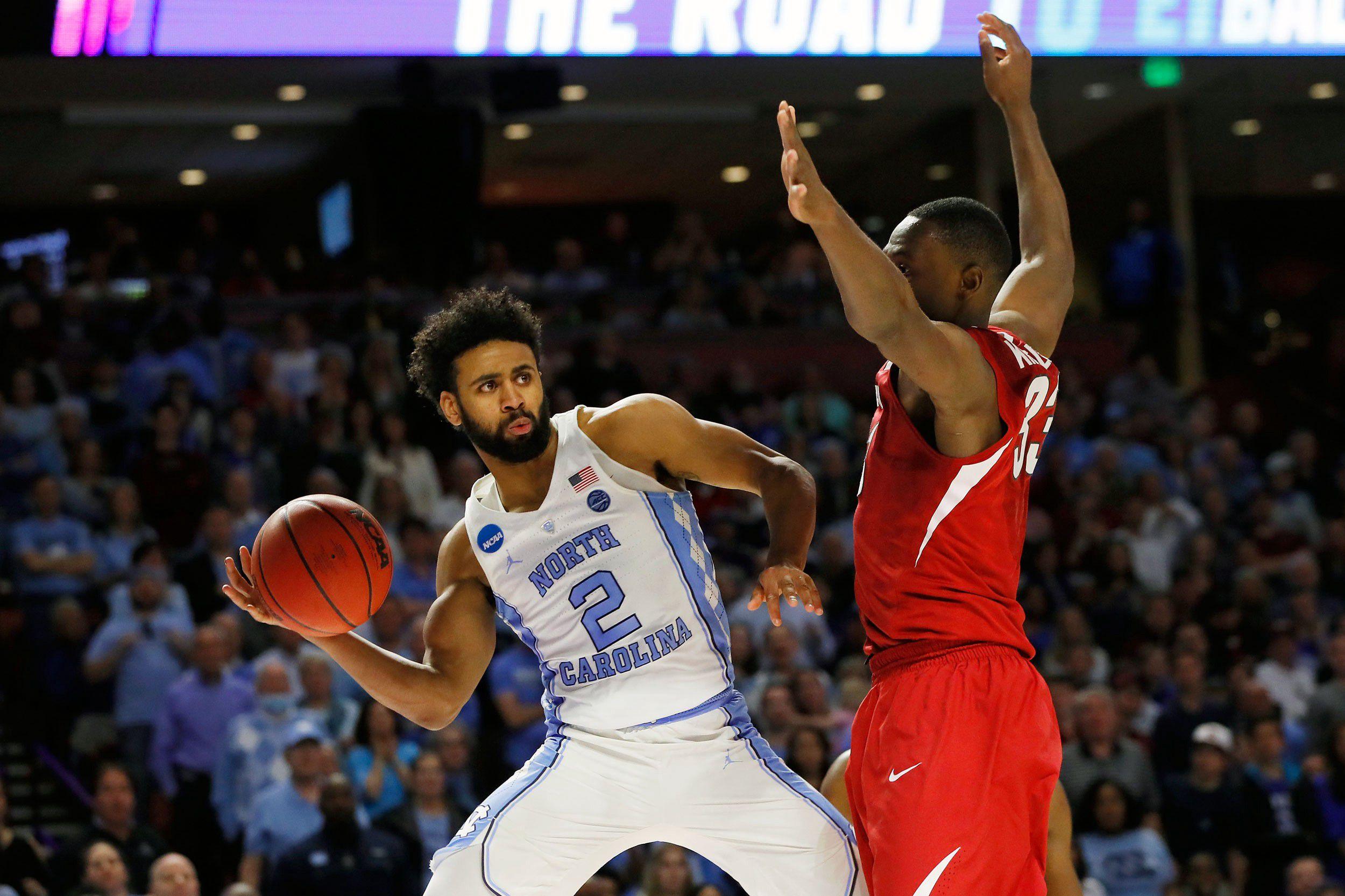
7. North Carolina
The Tar Heels are motivated to erase the pain of last year’s national title game, when Villanova’s Kris Jenkins ripped their hearts out at the buzzer. But as is typically the case with North Carolina basketball, the pursuit of a banner goes beyond just one or two seasons. Whereas most programs would be ecstatic to win one national championship, the Heels treat titles like stepping stones in their quest to climb past all the other bluebloods in the sport. As things now stand, Carolina is tied for having the third-most national championships (five), alongside Duke and Indiana and behind Kentucky (eight) and UCLA (11).
Other than the championship count, the biggest thing at stake for Carolina over these next couple of weeks is Roy Williams’s legacy. It might seem crazy to think about, but by virtue of his eight Final Fours and two national titles, Williams is knocking on the door of being considered a top-five coach of all time. (It’s hard to imagine many people arguing against a top five of Mike Krzyzewski, John Wooden, Bob Knight, Adolph Rupp, and Dean Smith, in some order.)
Williams is already on pace to eclipse Smith’s 879 career wins by 2019 or 2020, and he’ll likely have a better winning percentage once he gets there. If Williams wins the title this year, he’ll have more national championships than Smith and only three fewer Final Four appearances, which isn’t as telling as it sounds, given that Smith’s teams needed only two wins to reach the Final Four from 1967–69. I’m not saying that Williams will ever be more important than Smith to the history of UNC basketball, because that sounds absurd to me, too. I’m just saying that if Williams can claim another title, the answer to the question “Who was the the best coach to ever sit on North Carolina’s bench?” won’t be as obvious as it’s been for 30-plus years.
6. West Virginia
Speaking of coaching legacies, Bob Huggins’s importance to college basketball history is a tricky thing to nail down. He’s one of just 10 coaches to win 800 or more games at the Division I level, yet he’s had little NCAA tournament success to show for all of those wins. This marks just the eighth time in 32 years (at West Virginia, Kansas State, Cincinnati, and Akron) that he’s reached the Sweet 16, despite the fact that his teams won 25 or more games in half of those seasons. Whether Huggins is a choker, a coach who overachieves with rosters full of unheralded recruits, or some combination of both, the fact remains: His successes only seem to be enough to get people to notice what he hasn’t accomplished.
Be that as it may, Huggins is still the best coach that two different programs (Cincinnati and West Virginia) have ever had, and he’s been true to himself at every step along the way. Winning a title in what would be his third trip to the Final Four would make him a Hall of Fame lock, while not having that line on his résumé may keep him out. This is all trivial, of course, since I’m guessing Huggins gives zero shits about the Hall of Fame and would only go to the ceremony if a steak dinner and a bottle of scotch were included.
5. Arizona
I’m sorry Arizona fans. I really am. I just honestly have no choice but to keep bringing up the Wildcats’ history of losing in the Elite Eight. It’s impossible to talk about them in March otherwise. I don’t think it’s an indictment of the program or of head coach Sean Miller that Arizona seems cursed every time it makes the Elite Eight, especially since the Cats don’t just lose when they get there — they lose in gut-wrenching fashion. Four of their five Elite Eight losses in the past 15 years were decided by one possession, and two came in overtime. That’s a run of shitty luck, no matter how you slice it.
Then again, at some point you have to make your own luck in the NCAA tournament, and that’s kind of where I’m at with Arizona. This has to be the year. The West regional is there for the taking, as the only team that should pose a realistic threat is no. 1 seed Gonzaga, which has a haunted March history of its own. Unfortunately, if the Cats can win two games over the weekend, they might face even more pressure moving forward, since this marks the 20-year anniversary of Arizona’s only national championship and since the Final Four is being played in Glendale. As much as I’d like to say that location would give the school a home-court advantage, the truth is that the last team to play close to home in the Final Four and win it all was Kansas, in Kansas City, in 1988. (Notable close-to-home losers since: Duke in the 1994 title game in Charlotte, Illinois in the 2005 title game in St. Louis, Michigan State in the 2009 title game in Detroit, and Butler in the 2010 title game in Indianapolis.)
Basically, a national championship for Arizona would exorcise all sorts of demons that date back well over a decade, ranging from Final Four droughts for both the program and Miller to teams losing title games close to campus. No pressure!
4. UCLA
The only reason I have UCLA power ranked at no. 4 while Arizona is at no. 5 is because the Bruins are an affront to how I believe college basketball champions should be constructed, and their winning a national title would be devastating to my efforts to convince America that I know what the hell I’m talking about. UCLA is a fast-paced, offensive-minded, jump-shooting team that isn’t great defensively, and it’s coached by a guy who has been to only three Sweet 16s in the previous 22 years — and immediately lost by double digits each time he got there. Throw all of that into a pot, stir it up, and sprinkle in a path to a title that could have to go through Kentucky, North Carolina, Kansas, and Arizona, and you’ve got a recipe for a disappointing end to an electrifying UCLA season.
And yet, I’d be lying if I said I wasn’t sweating the thought of the Bruins cutting down the nets in April. There’s just something about this team that feels special, and if any team could turn college basketball conventions on their head, it’s these guys. A national championship would give UCLA its 12th all time and would make Indiana fans rethink their stance on Steve Alford taking over for Tom Crean at IU. But the real story would be that finesse, up-tempo, West Coast basketball can work on college basketball’s biggest stage, which is something that hasn’t been said for a very long time.
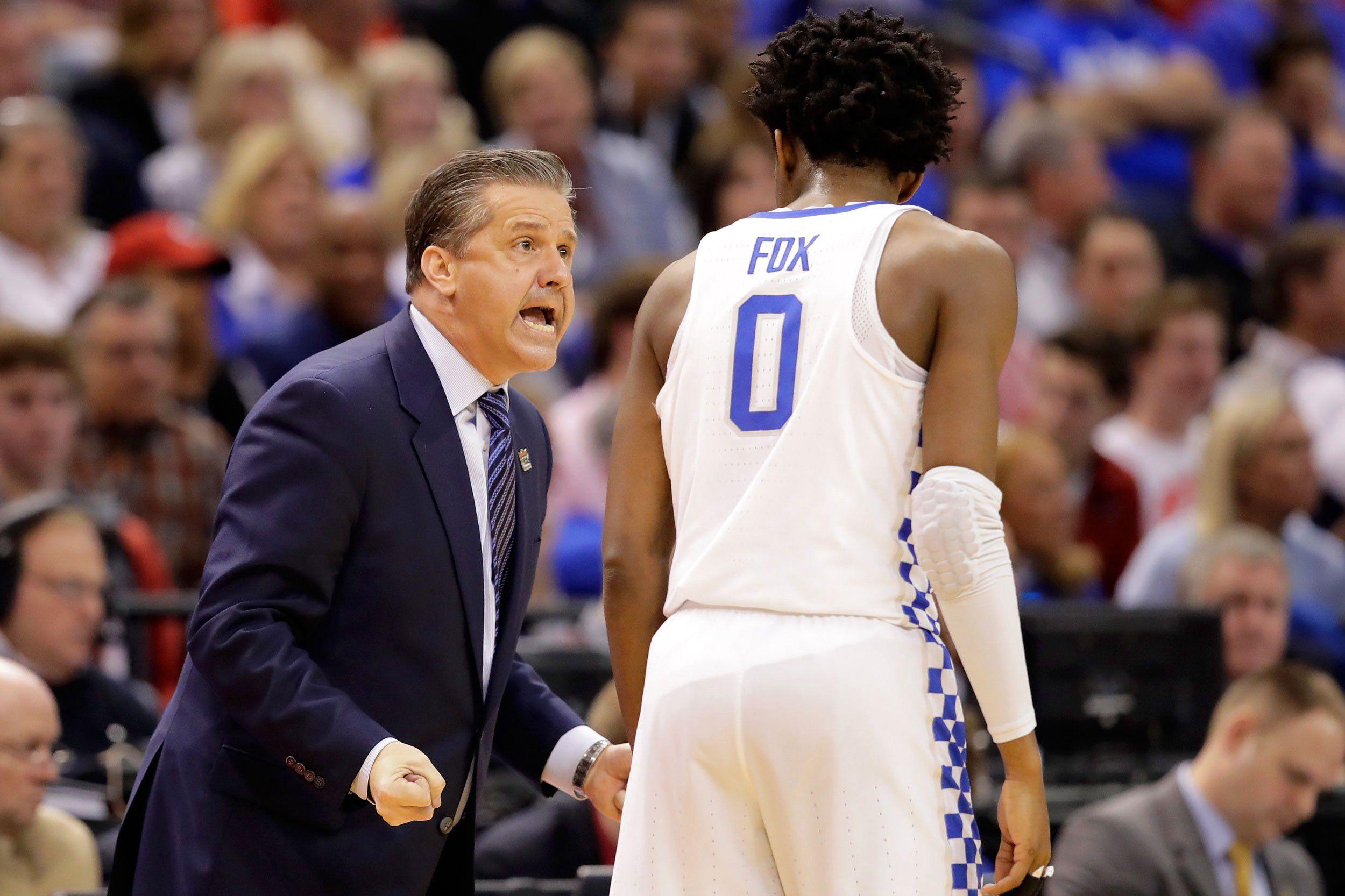
3. Kentucky
One of my favorite questions to ask NBA fans and/or sports fans who don’t really follow college basketball is how many national championships John Calipari has won. When I ask them to name a college basketball coach, they’ll almost always mention Cal or Mike Krzyzewski first, which hints as to why the answers to that Calipari question generally fall between the range of two and four. This is Cal’s design. He’s such a media manipulator (in a good way … I think) that it almost doesn’t matter what his teams do on the court because he’s still going to find a way to win, whether it’s through writing books, hosting a podcast, schmoozing with celebrities or whoever is interviewing him on ESPN, or charming the media in his press conferences.
For what it’s worth, Calipari has long maintained that his ultimate goal as Kentucky’s coach is to send his players to the NBA, which is fine if you take that at face value. But when virtually every guy he recruits is bound for the NBA anyway, it’s easy for this to come across as a man trying to defend himself against critics who may wonder why he has only one national title to show for the greatest recruiting stretch any program has had in almost 50 years. This would be like if you missed a sales quota and tried to tell your boss that it wasn’t a big deal because your real goal was to make your clients like you, which is something you knocked out of the park because you took them golfing and drinking all the time and always picked up the tab. That’s great and all, but you still gotta put up numbers or none of it matters.
So here’s what Kentucky has at stake: It can solidify Calipari’s reputation as a great coach instead of just a great recruiter who serves as the leader of Big Blue Nation. I don’t mean to discount that Calipari has been to four of the past six Final Fours. It’s just that given the way people treat the guy, you’d assume he’s at least won more national titles than Tubby Smith.
2. Gonzaga
It’s time to start thinking about a world in which Gonzaga wins a national title. I know that sounds ridiculous for those of us who remember Gonzaga as the Cinderella of the late 1990s and early 2000s, but the Zags now have the best team in school history, are arguably the best team remaining in the tournament, and have the most manageable path to a championship they’ve ever had. This is a real thing with a real chance of happening.
So what would it mean if the Zags not only make the program’s first Final Four, but also end up going all the way? How could anyone know? This sort of thing would be unprecedented. No program considered a mid-major has ever won a national title in the modern era, meaning that Gonzaga would forever change the way we view college basketball’s caste system. As simple as it might be to assume that Gonzaga could ultimately move to the Pac-12, its lack of a football team puts it in a bind. Its only real option is to stay in the West Coast Conference and hope the league can grow into something more than just a collection of teams for the Zags to beat up on.
In short: I have no idea how everything would play out. The general public would have no choice but to start taking Gonzaga more seriously and the NCAA tournament selection committee would likely give it the benefit of the doubt with seeding moving forward. But because of things like not having a football program and being located somewhat in the middle of nowhere, everything else is anyone’s guess. If I had my way, the Zags would win the title and then revert back to where they were in the early 2000s, so we’d forever look back on 2016–17 and wonder how it all happened.
1. Kansas
The Vegas favorite to cut down the nets is coached by a man who has won an average of 29 games per season over the course of the past 18 years yet has also coached in the same number of Final Fours as Bill Guthridge. Take a second to reread that sentence and drink it all in. It truly is remarkable.
I’m of the opinion that Bill Self doesn’t choke in the NCAA tournament any more than other coaches, and that the only reason it feels like he does is because his teams are always seeded high, and that any time a high seed loses before the Final Four it’s framed as a choke job. But when you lay it out like that, it’s not hard to see how people arrive at the “Self is a choker” conclusion. That’s why these next two weeks are MASSIVE for Self, who could make this season his magnum opus if everything goes right. He’s already changed his approach to the game by implementing a four-guard lineup that sacrifices a little bit of defense for a lot of offense, which is a significant diversion from Self’s typical defensive-minded approach that relies on an inside-out offensive philosophy. And while this change was brought on by the limitations of his roster more than by anything else, history will nonetheless look back on it as a stroke of genius if it proves to be the difference between Self’s “choke jobs” and his second national title.
That’s why I’m power ranking Kansas as the team with the most to gain from winning the 2017 championship. It would give the Jayhawks one more title than Louisville, which in turn would strengthen their advantage over the Cardinals in landing recruits who are being funneled to Adidas schools by handlers. Most importantly, though, Self is four wins away from having a complete reputation overhaul. When you win one national title, people can argue that you were lucky. When you win two, nobody can tell you shit.